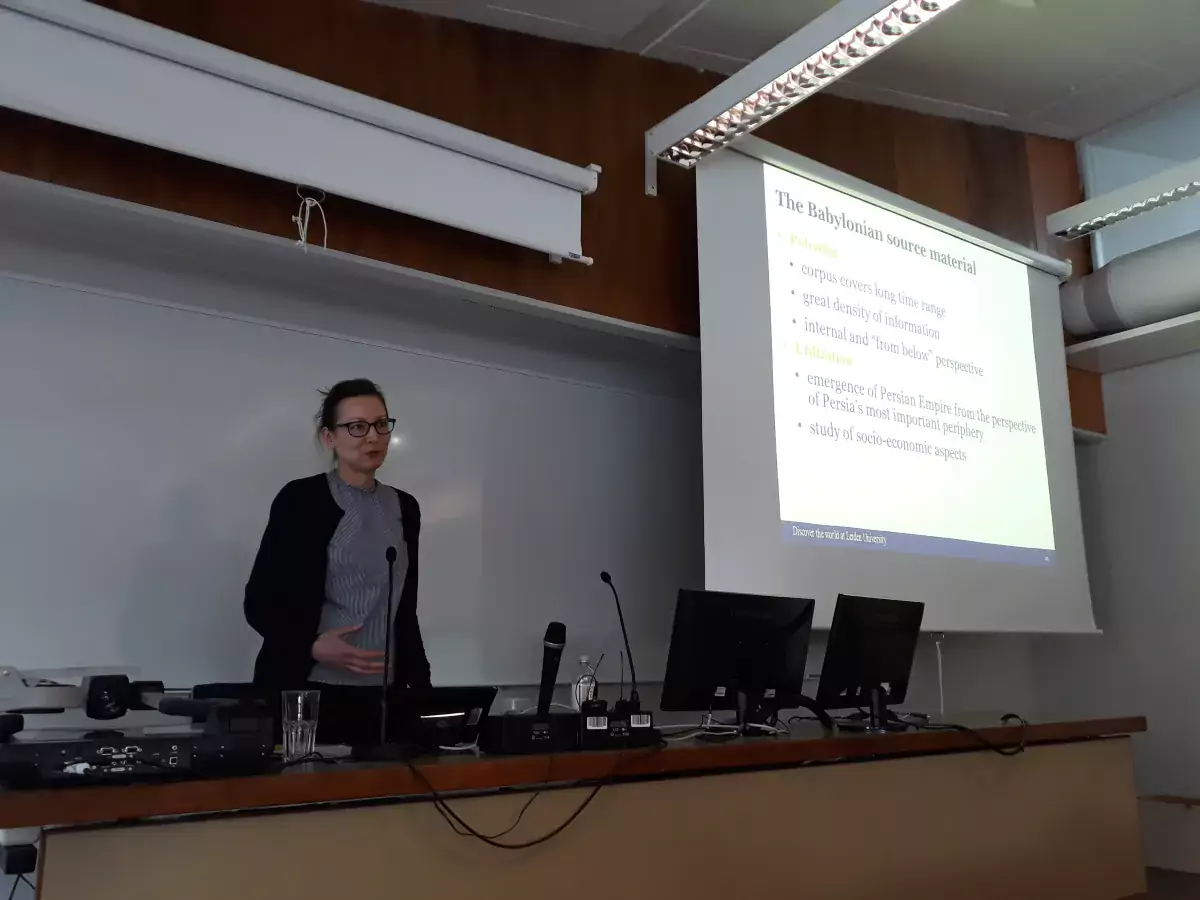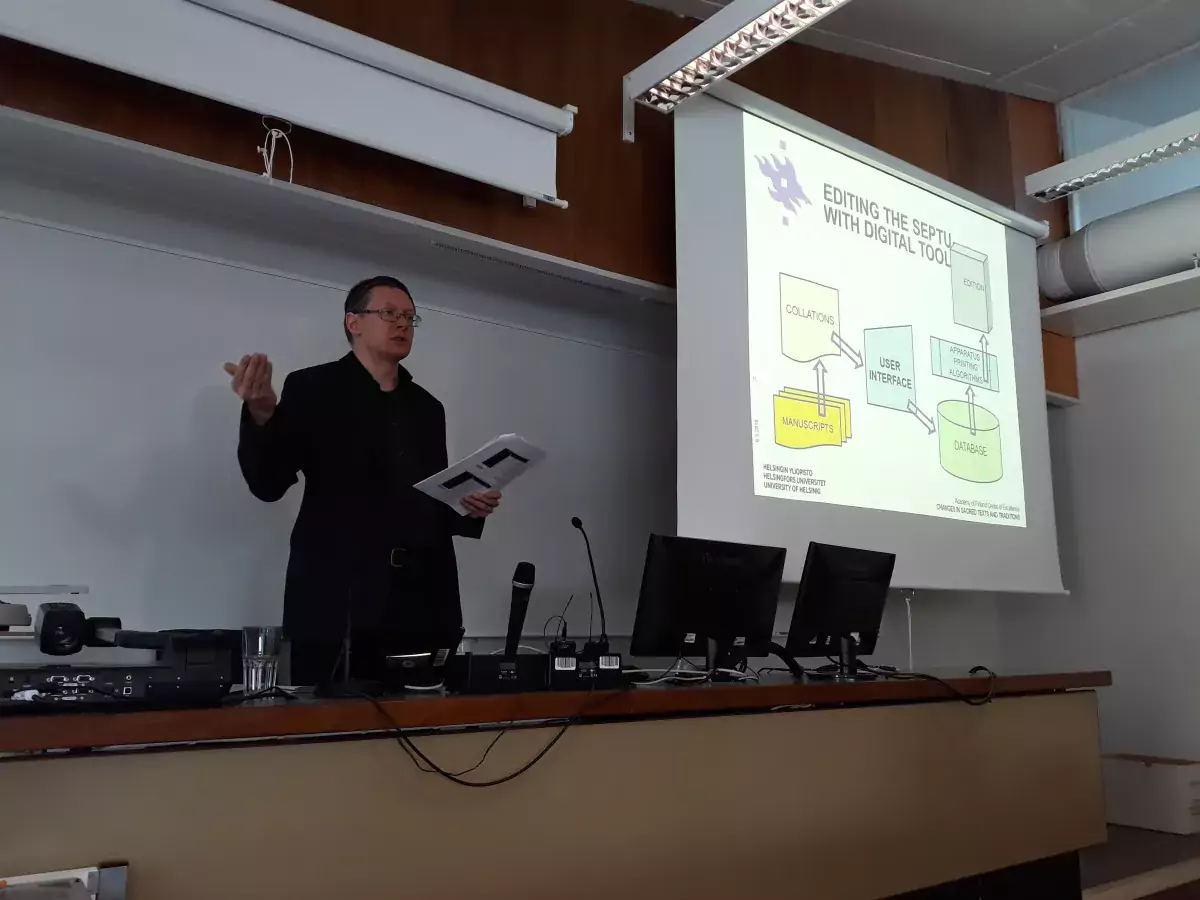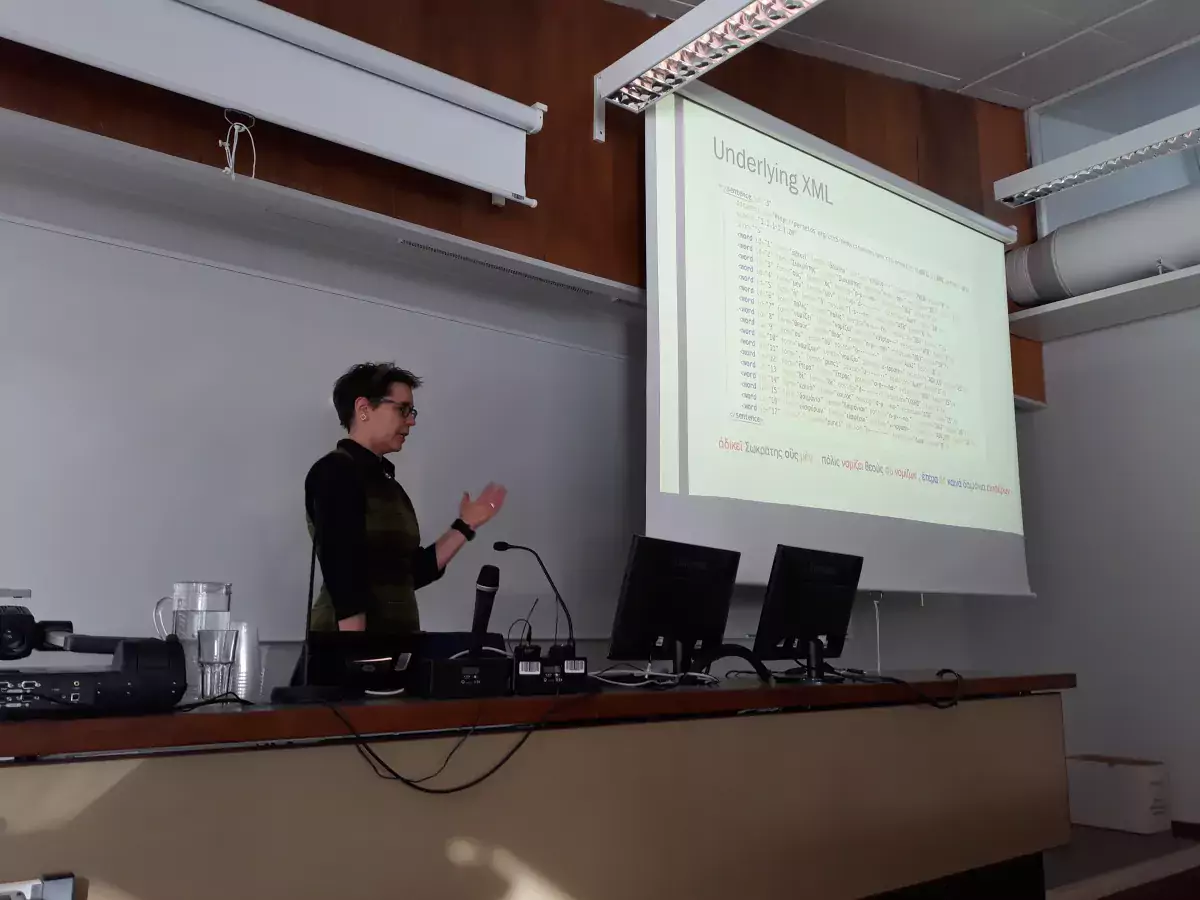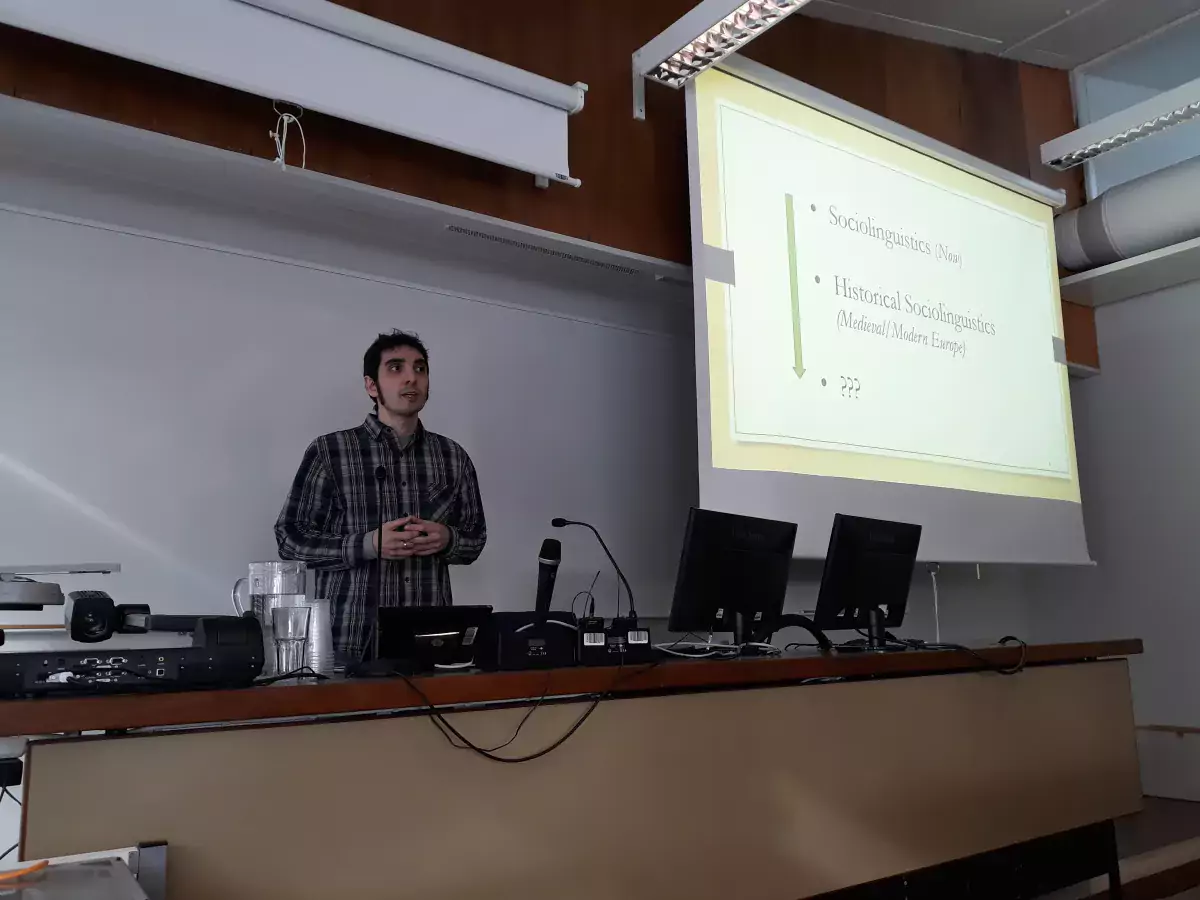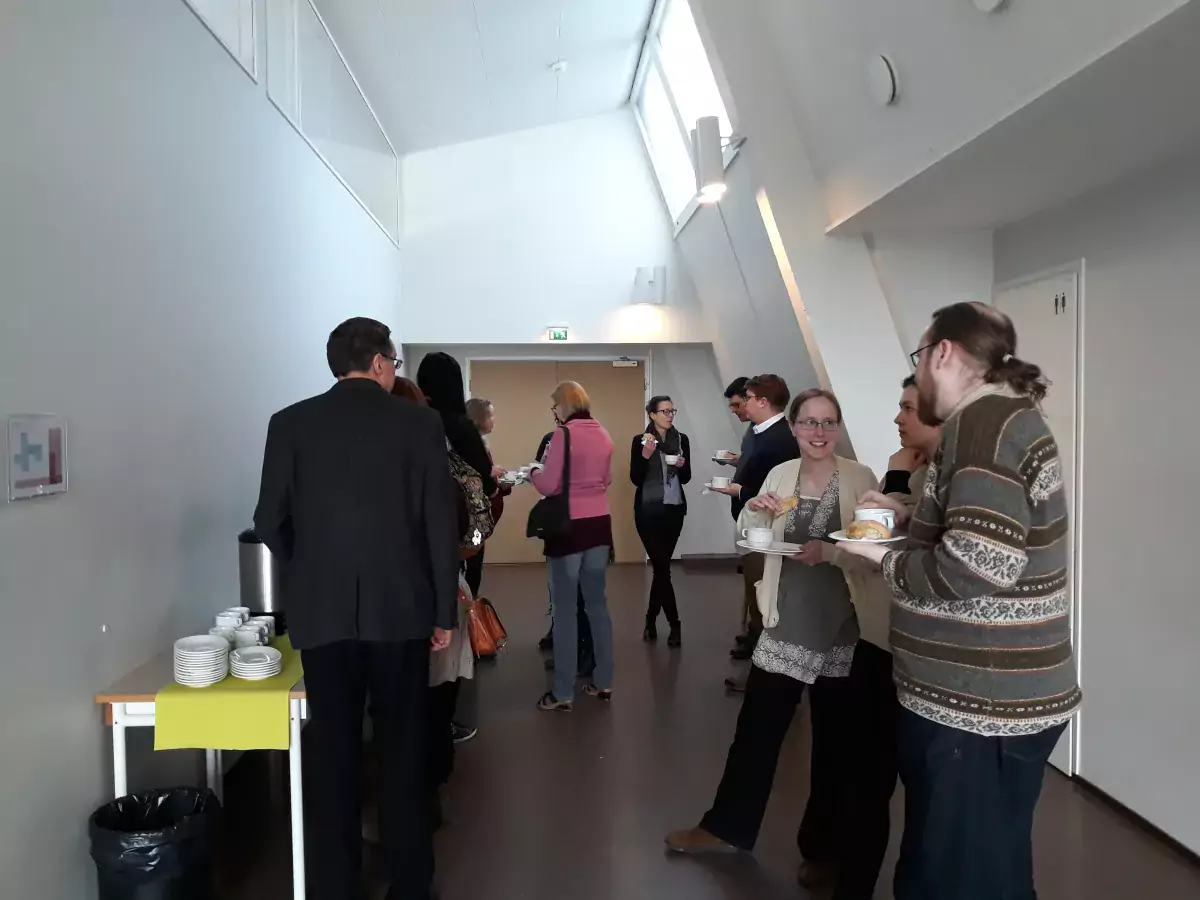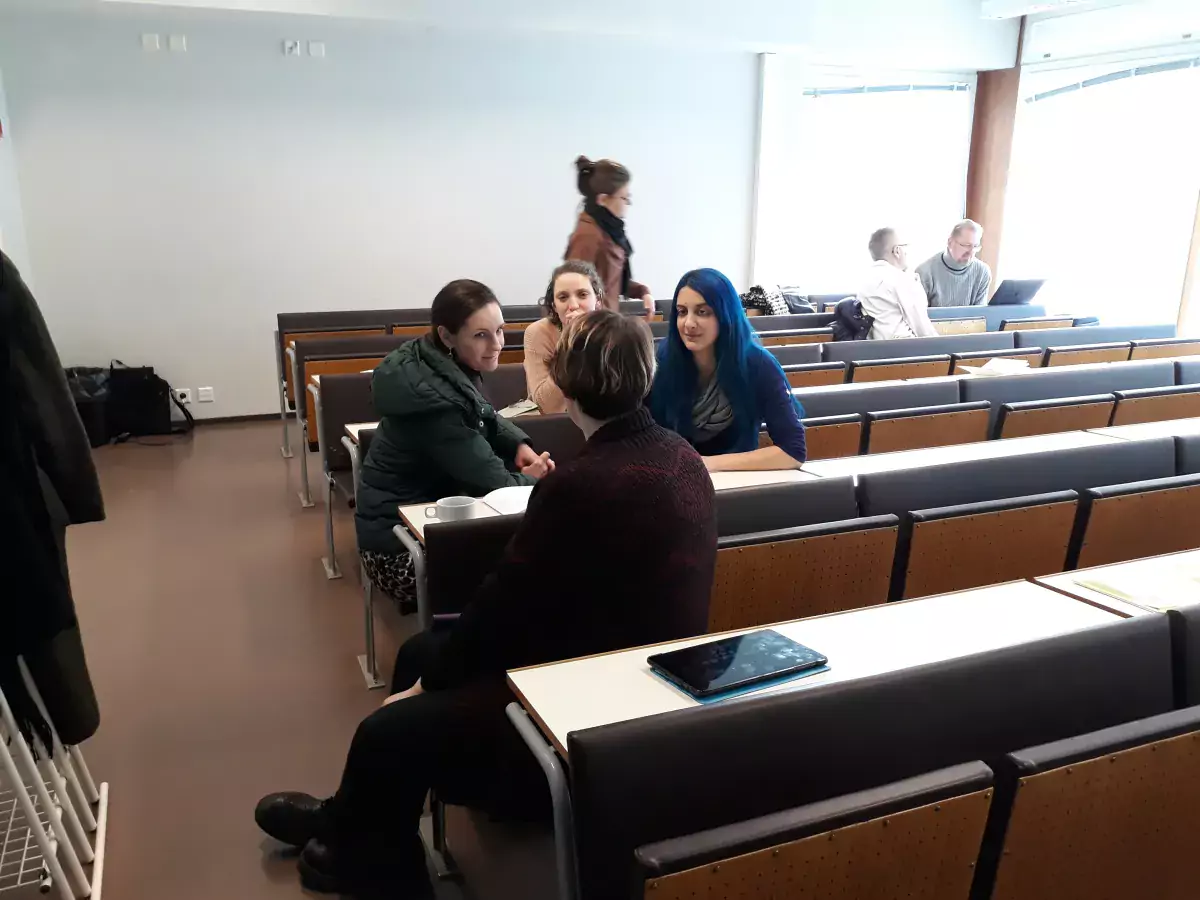The seven presentations of the workshop covered a wide variety of digital humanities projects. Melanie Groß from Leiden University and Paulina Pikulska from the University of Warsaw presented projects which enhance our knowledge of Babylonia in the mid-first millennium BCE. Groß discussed the ERC project “Persia and Babylonia” and a prosopographical database which will eventually allow anybody to access the rich socio-historical data from Babylonian archives. Pikulska’s contribution showed how social network analysis is applied to a microhistorical study of a businesswoman in the Babylonian city of Sippar.
Three researchers from the University of Helsinki presented projects relating to the study of ancient texts and languages. Tuukka Kauhanen is editing the Greek text of 2 Samuel for the Göttingen Septuagint project and uses a database to handle the numerous different manuscripts and their textual variants. A critical edition of an ancient text should be as reliable as possible and the use of a database allows the editors to reduce the number of mistakes to minimum. Marja Vierros discussed some digital methods applied to papyrological research and presented her ERC project on Greek documentary papyri from Egypt. Her project will enhance our knowledge of the language used in the texts and will develop a digital grammar of these papyri. Johannes Bach is developing an online database which allows structuralist study of Assyrian royal narrative texts. Once publicly available, the database will enable researchers to search for narrative elements in the texts and trace their developments over time.
Two projects aim to enhance our understanding of the Akkadian language. Rodrigo Hernáiz from the Philipps-Universität Marburg is tracing the linguistic developments in Akkadian in the Old Babylonian period. An electronic database allows him to trace linguistic variation and change during a period of rapid development in the Babylonian dialect of Akkadian. Finally, Tero Alstola, Heidi Jauhiainen, and Aleksi Sahala from the University of Helsinki presented the research project “Semantic Domains in Akkadian Texts”. The project aims to reach a better understanding of the Akkadian language and Mesopotamian culture by applying language technological methods to a large corpus of Akkadian texts. At the same time, new methods and digital tools will be developed and made available for other researchers.
The workshop demonstrated the growing number and increasing diversity of digital projects relating to the ancient world. It also became clear that there is need for closer collaboration between scholars of the ancient world and computer scientists, as no digital project can succeed without a deep knowledge of both the source materials and applicable computational methods.
